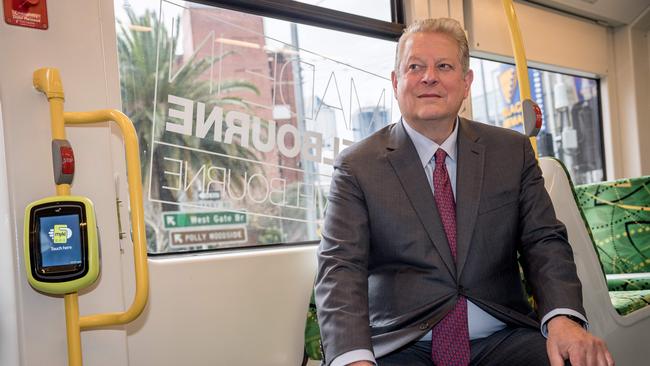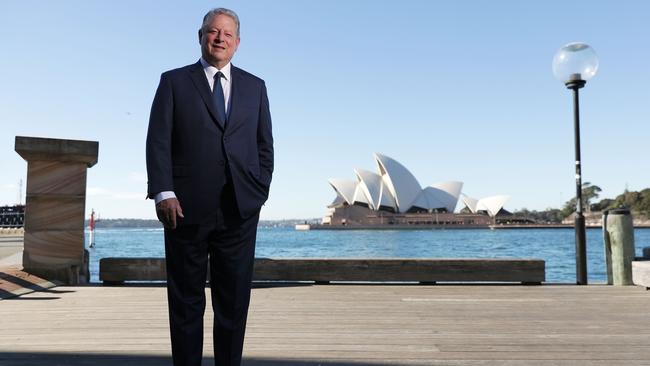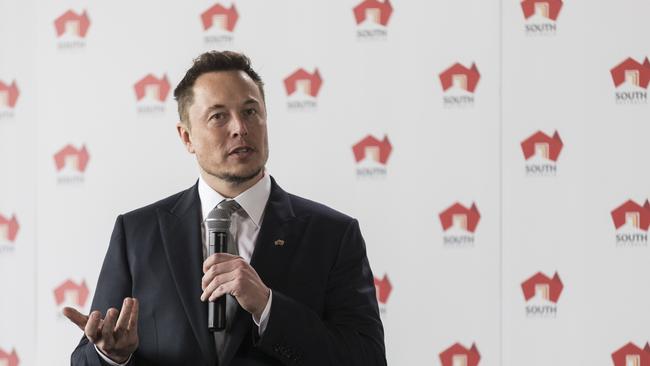Al Gore’s movie is a casebook for real power existing outside politics
POLITICS is paralysed. If you want to effect real change, do it from the outside. Just look at Al Gore and Elon Musk, writes Rachel Corbett.

Rendezview
Don't miss out on the headlines from Rendezview. Followed categories will be added to My News.
FORMER Vice President Al Gore has been asked many times whether he’s interested in running for office again and his answer is always the same: “I’m a recovering politician.” I’m not sure whether you can be ambitious enough to get that close to the White House and ever get politics completely out of your system but I wonder whether these post-Washington years have made him realise yet another inconvenient truth; If you want to make the world a better place you’re probably better off doing it outside of politics.
When Gore was approached to make An Inconvenient Truth, by a producer who’d seen him speak at a climate conference, he said he couldn’t understand why anyone would want to make a movie out of a PowerPoint presentation. That PowerPoint presentation now has two Oscars.
He even had to be convinced of the merit of his second film, An Inconvenient Sequel, and when you watch it it’s not hard to understand why. Seeing a Former Vice President personally working the phones, meeting with world leaders and pushing to get the Indian Government to commit to the Paris Accord was a fascinating insight into an event most of us will never have the opportunity to witness. But for Al Gore, it’s his life.

Two films and two Academy Awards later there must be a part of the former VP that realises it’s easier to get your message heard when it’s prefaced by a red-carpet arrival than when it’s delivered from one of the most revered offices in the world.
Perhaps, if his PowerPoint hadn’t hit the big screen he might still be on the speakers circuit trying to reach people one room at a time. Instead he’s arguably changed the global conversation around climate change and reignited the environmental movement.
I doubt there was ever a time when politicians were the recipients of undying love and affection but it certainly seems, in recent times, as though the respect for the institutions of government are being eroded. This isn’t entirely the fault of MPs although they’re not without blame. The obsession with re-election above all else, the penchant for inauthentic spin and the influence of special interests are just some of the reasons the public don’t trust those in power. But we get back what we put in and our desire to give 140 character complaints too much weight and demand change while refusing to give up anything personally means we’re not really making it easy for politicians to meet our unrealistic expectations.
Add to that the frustration of selling policies while sitting across from an opposition whose job is to make whatever you said, good or bad, sound un-electable and we’re stuck in a perpetual cycle where nothing ever gets done.

Unfortunately, from the outside it looks like everything in politics is geared towards keeping your name on the door rather than doing what’s best for the people you’re supposed to be serving and it also appears that the rules of the game have changed. When Al Gore was elected to Congress at the age of 28 he did so without a single fundraiser. Nowadays in the United States, Congressmen spend an average of four to five hours a day on the phone begging rich people and special interest groups for the money needed to campaign for re-election.
So surely, while it would have been nice to remove ‘Vice’ from his business cards, Gore must appreciate the freedom of being able to issue a message without having to run it through the filter of “will this get me re-elected?”
By moving from politics to popular culture, Gore has now become part of a band of private individuals who are dealing with government inefficiency by going around it. One tweet to Elon Musk and State and Federal politicians here in Australia went from bickering between themselves to scrambling to take credit for a revolutionary idea. In 140 characters, South Australia’s energy crisis was given a potential solution complete with a 100-day money back guarantee, proving to the public that not every political decision needs to be made at a glacial pace.
While this is inspiring to see, it’s also a little disheartening. The optimist in me wants to believe people get into politics to make the world a better place but it feels like the game is rigged against good intentions. I’m sure it didn’t take long for Peter Garrett to realise he was probably more effective bouncing around on stage than he was in the halls of Canberra and it seems if you truly have a passion for change you’re more likely to achieve it away from the limitations of Parliament.
But again, it’s important to remember the part we’ve played in all this. After all, if a billionaire tweets he’s going to install a battery farm in 100 days we all applaud him as a hero. If a politician says that he’s either playing favourites, not listening to the members of his party who aren’t 100 per cent sold on climate change, or wasting money that should be funnelled somewhere else. Our inherent distrust in MPs, whether it’s justified or not, means even when they’re telling us something we need to hear we’re immediately sceptical. Throw the Senate into the mix and suddenly, doing the right thing doesn’t look so easy.
I’m sure Mr Gore has had many “what if” moments since approaching the podium back in 2000 to concede defeat to George W Bush. But I wonder if his political recovery has been aided by the realisation that he might be able to do more to change the course of history from Hollywood than he ever would have been able to do from the Oval Office.


